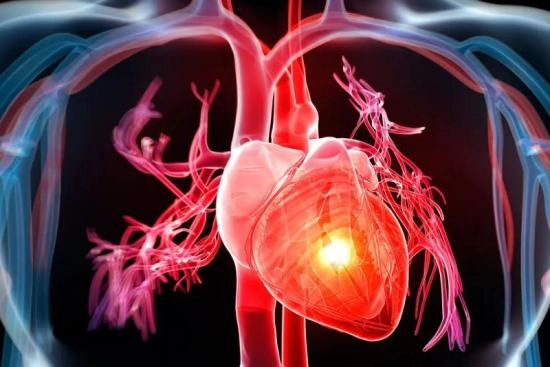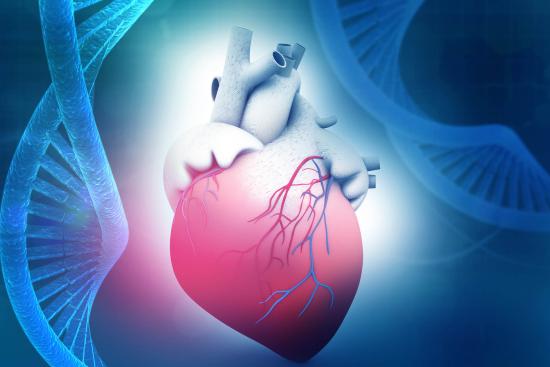Congenital heart disease is a structural problem of the heart that is present at birth. These congenital heart defects can change the way blood flows through the heart. Most congenital heart defects are not life-threatening, but some can be fatal.
Choose advanced congenital heart disease treatment options in Turkey from top cardiologists!
People who suffer from:
- Heart failure.
- Cyanosis.
- Valvular abnormalities.
- Heart transplant.
- Angioplasty.
- It all depends on the technique used.
Best Clinics with Verified Reviews

- Multispecialized hospital
- 7 operating rooms
- Capacity é of 170 beds

- Multispecialized hospital
- Hospital founded in 2007
- Very good reputation in ENT department
What is congenital heart disease?
Congenital heart disease is a malformation of the heart that is present at birth. The severity of this condition can vary greatly from person to person, ranging from a benign form with no significant consequences to a severe form that requires immediate treatment.
These malformations occur when the structures of the heart (ventricles, walls, valves) do not develop properly during fetal life.
In adults, congenital heart disease can manifest itself in two main ways:
- Initial asymptomatic form: The heart defect may remain silent for many years before causing symptoms.
- Complex form, treated in childhood: Patients who have undergone surgery at a young age may develop long-term complications that require regular cardiac monitoring.
Although some congenital heart defects are diagnosed in adulthood, most are detected in childhood or even before birth through fetal ultrasound.

Types of congenital heart defects
Some of the common types of congenital heart defects include:
- Atrial Septal Defect (ASD): This is when there is a hole between the two upper chambers of the heart, known as the atria. It can lead to abnormal blood flow and cause symptoms like fatigue and shortness of breath.
- Ventricular Septal Defect (VSD): In this condition, there is a hole between the two lower chambers of the heart, called the ventricles. It can affect blood flow and may result in symptoms such as poor weight gain and rapid breathing.
- Patent Ductus Arteriosus (PDA): PDA occurs when the temporary blood vessel connecting the aorta and pulmonary artery fails to close after birth. It can cause breathing difficulties and increase the risk of infections.
- Tetralogy of Fallot (TOF): TOF is a complex CHD that involves multiple heart defects, including a ventricular septal defect, a narrowed pulmonary valve, an overriding aorta, and a thickened right ventricle wall. Children with TOF may experience cyanosis (bluish skin) and have difficulty with physical activity.

Common symptoms of a congenital heart defect
Are you wondering if you might be suffering from a congenital heart defect? Although some symptoms may seem harmless, it's important to consult a cardiologist in Turkey if you experience several of them.
A congenital heart defect can manifest itself in many different ways. Here are some signs that may indicate a problem:
- Excessive tiredness: A constant feeling of tiredness, even after light activity.
- Difficulty breathing: Shortness of breath, wheezing, choking, especially with exertion.
- Chest pain: Pain or discomfort in the chest.
- Palpitations: Irregular, fast, or slow heartbeats.
- Dizziness and fainting: Lightheadedness or fainting.
- Swelling: swelling of the legs, feet, or abdomen.
- Pale or bluish skin: unusual skin discoloration, especially around the lips or fingernails.
- Recurring fevers: episodes of fever with no apparent cause.
- Persistent cough: A cough that does not get better.

When should you see a cardiologist in Turkey?
These symptoms are not systematically associated with a heart defect, but they do require medical evaluation if
- They are new or worsening.
- They affect your quality of life.
- They occur after physical exertion.
In an emergency, contact your healthcare provider immediately if you have:
- Severe chest pain.
- Severe difficulty breathing.
- Loss of consciousness.
- Signs of stroke (weakness on one side of the body, slurred speech, etc.).
By consulting a cardiology specialist in Turkey, you'll benefit from an accurate diagnosis and treatment tailored to your situation.
Don't wait to take care of your heart. Consult a healthcare professional today.
Medication for congenital heart disease
While surgery is often necessary to correct congenital heart defects, medications play an important role in the treatment of certain conditions.
Medications can help regulate heart rhythm and improve circulation in mild heart disease. For example, calcium channel blockers are often prescribed to relax blood vessels.
It's important to note that each heart defect is unique, and drug treatments must be tailored to each patient. Some medications, while beneficial for some conditions, can make others worse.
In addition, people with congenital heart disease are more likely to develop certain heart infections, such as endocarditis, even after surgery. To prevent these complications, antibiotic prophylaxis may be recommended before certain medical procedures, including dental procedures.
Surgical treatment
Congenital heart defects, when diagnosed in adulthood, often require surgical intervention.
Catheter-based interventions
In many cases, minimally invasive techniques are preferred:
- For example, cardiac catheterization can correct certain septal deformities, dilate vessels or valves, and adjust pediatric repairs.
- Percutaneous coronary intervention: Treats coronary artery stenoses to restore adequate blood flow to the heart muscle.
- Transcatheter aortic valve implantation (TAVI): replaces the defective valve with a prosthesis without opening the chest.
Open-heart surgery
Open-heart surgery remains essential for complex malformations or to replace heart valves.
It can be used to:
- Eliminate abnormal communication between heart chambers.
- Correct patent ductus arteriosus and other congenital anomalies.
- Repair or replace damaged valves.
- Enlarge the diameter of narrowed blood vessels.
As a last resort, heart or heart-lung transplantation is a treatment option for the most severe forms, but is reserved for patients who are in good enough health.
Turquie Santé gives you access to many renowned clinics offering high-quality treatment for congenital heart disease at competitive costs.
Share this page






